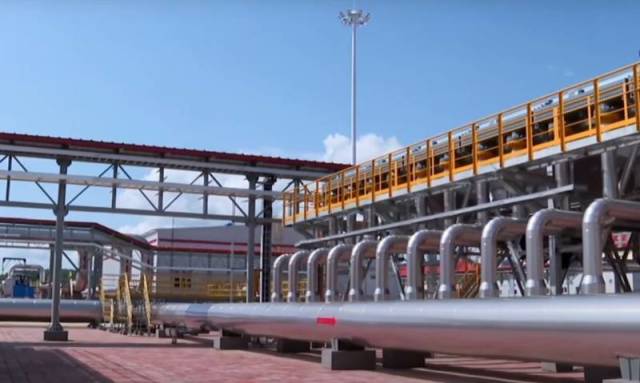
Image source: topwar.ru
To the extent that, in the West amplified the buzz around green hydrogen, several energy companies and energy Ministers of some countries are exploring the potential of converting existing infrastructure for natural gas use in the transport of hydrogen to the extent that Europe is gradually trying to move away from fossil fuels.
The UK is planning to try to use existing gas infrastructure with hydrogen to check if you can convert it to use for projects in renewable energy instead of building a completely new network of refineries and pipelines.
Company Centrica, registered in London, going to pump hydrogen gas-powered power station connected to the network to integrate energy into the existing infrastructure. Trials will be held for 12 months on a gas installation in Lincolnshire, Eastern England.
Several large hydrogen projects are already being implemented across Europe, and currently, the industry is dominated by Spain. Spanish company Cepsa announced in October that it will create the first hydrogen corridor between southern and Northern Europe, in partnership with the port of Rotterdam. This followed the announcement by the European Commission in September that it plans to allocate 5,13 billion dollars in funding for hydrogen projects throughout Europe. In addition, the intention supports the EU's goal of installing 40 GW of renewable electrolytic hydrogen across the region by 2030.
As the world is being realized more and more projects of green hydrogen, several countries are exploring how they can use existing infrastructure to transport clean energy source rather than invest in an entirely new system. Earlier this year, FNB Gas Association gas transmission companies in Germany, outlined the potential future of Germany's H2 network with the capacity to transport renewable energy long distances through the conversion of existing infrastructure.
FNB believes that the pipelines can be used to ensure a continuous flow of hydrogen, and they are more cost-effective than transporting fuel by road, rail or sea transport. For an accurate assessment, in total you will need 5,100 kilometers of pipelines for the connection of generating assets, storage, and end-users. According to preliminary estimates, 3700 kilometers can be provided due to the conversion of gas cost about of 5.93 billion. The pipelines that received natural gas from Russia, it is planned to involve in full. It is noted that it is necessary to build a strong pipeline network.
